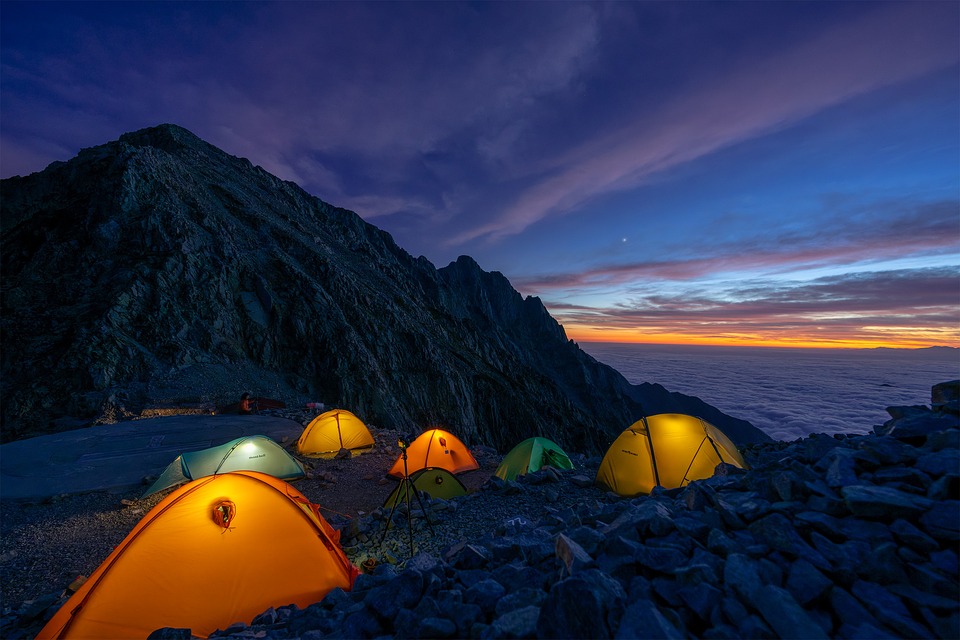Introduction
Are you planning a camping trip? Camping is a wonderful way to reconnect with nature and create unforgettable memories with friends or family. To ensure a successful outdoor experience, it’s important to be well-prepared. Here are 10 essential camping tips that will help make your trip enjoyable and stress-free.
1. Choose the Right Campsite
The first step to a memorable camping experience is selecting the right campsite. Research different locations and consider factors such as accessibility, amenities, and surroundings. Whether you prefer a quiet spot by a lake or a bustling campground with activities, choose a campsite that suits your needs and preferences.
2. Plan and Pack Accordingly
Prioritize your packing to ensure you have all the essentials. Make a checklist of camping gear, cooking supplies, clothing, and toiletries. Don’t forget to bring a first aid kit, matches/lighters, a tent or sleeping bag, and a lantern or flashlight. Be sure to check the weather forecast and pack appropriate clothing for the conditions you may encounter.
3. Set Up Camp Early
Arrive at your chosen campsite early to set up camp while it’s still daylight. This will give you ample time to familiarize yourself with the surroundings and make any necessary adjustments. Setting up camp during daylight also ensures you have enough time to address any issues, such as finding a flatter ground for your tent, before it gets dark.
4. Stay Organized
Keeping your camping gear organized is essential for a stress-free experience. Use storage containers or bins to store and categorize your items. This will make it easier to find what you need and keep your campsite clutter-free. Additionally, consider using a clothesline to hang wet clothing or towels.
5. Practice Fire Safety
Before starting a campfire, ensure it is allowed and follow all fire safety guidelines. Clear the area around the fire pit from any flammable materials and never leave the fire unattended. Remember to fully extinguish the fire before going to bed or leaving the campsite. Keeping a bucket of water or a fire extinguisher nearby is also recommended.
6. Cook Delicious Outdoor Meals
Camping is a perfect opportunity to enjoy tasty outdoor meals. Plan and prep your meals in advance, considering the available cooking equipment and facilities at your campsite. Pack non-perishable food items, snacks, and plenty of water. Don’t forget to bring cooking utensils, a portable stove or grill, and a cooler to keep perishable items fresh.
7. Dress Appropriately
Pack clothes suitable for the weather conditions you expect during your camping trip. Layering is important as temperatures can change throughout the day. Opt for lightweight, breathable fabrics that wick away moisture. Don’t forget to bring a hat, sunglasses, and sturdy footwear for hiking or exploring the surroundings.
8. Embrace Nature
Take the time to appreciate and connect with nature during your camping trip. Explore the surroundings, hike nearby trails, or go for a swim in a nearby lake or river. Take pictures and make memories that will last a lifetime. Don’t forget to respect wildlife and leave the campsite as you found it, practicing responsible outdoor ethics.
9. Stay Hydrated and Hygienic
Staying hydrated is crucial while enjoying outdoor activities. Pack enough water for your entire trip and consider bringing a water filtration system if your campsite doesn’t provide potable water. Maintain good hygiene by washing your hands regularly and using biodegradable soap. Keep your campsite clean to avoid attracting animals.
10. Prepare for Unpredictable Situations
Even with careful planning, unexpected situations can occur. Be prepared for changes in weather by packing rain gear and extra layers. Familiarize yourself with emergency procedures and know the location of the nearest hospital or medical facility. Additionally, inform someone about your camping plans and expected return date for extra safety.
FAQs
Q1: How can I stay safe from wildlife?
When camping in areas with wildlife, store food securely in bear-resistant containers or hang it properly in a tree. Avoid feeding or approaching any wild animals and respect their space. Educate yourself about the specific wildlife in the area you’ll be camping in and take appropriate precautions.
Q2: Should I bring my own firewood?
It’s recommended to purchase firewood from the campsite or local vendors to prevent the spread of invasive species. Transporting firewood from other areas can introduce harmful pests and diseases to the environment. If buying firewood on-site is not possible, inquire about local regulations and restrictions regarding firewood transport.
Q3: How do I find the best hiking trails?
Research the area beforehand to find the best hiking trails that suit your preferences and skill level. Online resources, guidebooks, and local visitor centers are great sources of information. Consider factors such as difficulty, distance, and scenic views to choose the hiking trails that align with your interests.




